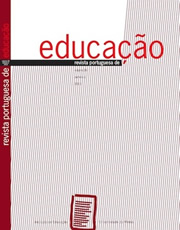MANAGING DIVERSITY: BENEFITS OF COOPERATIVE LEARNING TO BUILD INCLUSIVE CLASSROOMS
DOI:
https://doi.org/10.21814/rpe.2994Abstract
The action-research we have held at the primary education, in a school placed near the town of Tomar, in 2009-2010, under the master's degree in Special Education, was the starting point for writing this article. The research had as main objective to promote the successful learning of a heterogeneous group of students, where a child considered with longstanding special educational needs is included – diagnosis of galactosaemia and cognitive impairment. Starting from the educational context of a particular classroom of 2nd and 3rd
grades, where we were working as special education teacher, we had created an inclusive learning environment for each student in the class. Through effective collaboration between fellow teachers, we generated changes in methodologies, breaking with some traditional practices in the classroom, when regular teachers and special education are in the same learning space.
By a systematic implementation of cooperative learning strategies among students, and applying qualitative data gathering techniques of research, before and after the intervention – interview, naturalistic observation, sociometry and documental research –, we have increased the quality and quantity of learning and promoted another way of ‘looking to’ the difference.
Keywords
Inclusion; Diversity; Cooperative learning; Action-research
Downloads
Downloads
How to Cite
Issue
Section
License
1. The authors preserve their authorship and grant the Portuguese Journal of Education the right to the first publication. The work is licensed under Creative Commons Attribution License that allows sharing the work with the acknowledgment of initial authorship and publication in this Journal.
2. The authors have the right to take additional contracts separately, for non-exclusive distribution of the published version of their work (e.g. to deposit in an institutional repository or as a book chapter), acknowledging the initial authorship and publication in this Journal.
3. The authors have the permission and are stimulated to post their work online (e.g. in an institutional repository or on their personal website). They can do this at any phase of the editorial process, as it may generate productive changes, as well as increase impact and article citation (see The Open Citation Project).
The work is licensed under Attribution-ShareAlike 4.0 International (CC BY-SA 4.0)




















